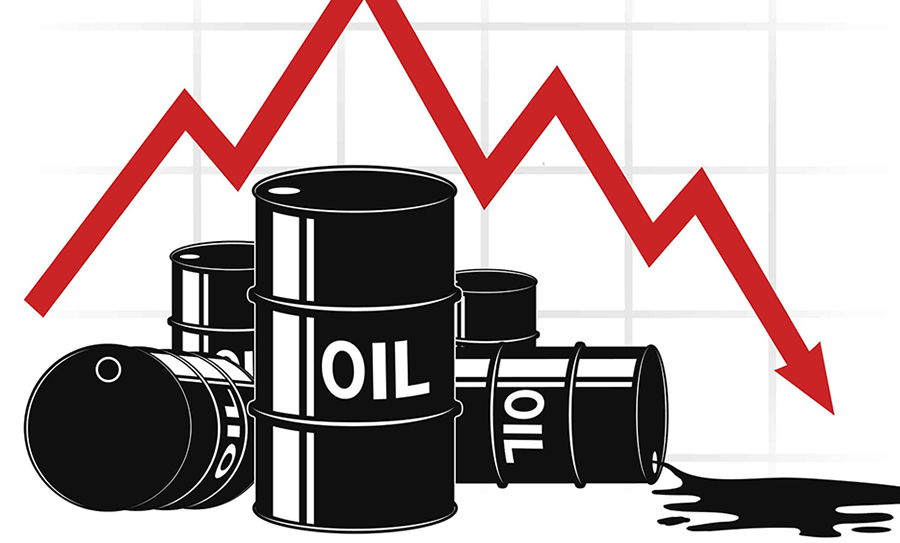PriceWaterhouseCoopers (PwC) has predicted that Nigeria and other oil-producing African countries will lose an estimated $1 trillion in oil export revenues over the next 20 years, as a result of likely low prices.
This is contained in its Africa Oil and Gas Review 2020, themed energising a new tomorrow.
The review notes that Covid-19 delivered a value destruction of the oil market in Africa; adding that African countries, of which many are dependent on oil and gas revenues, have had to divert fiscal resources to supporting healthcare and welfare responses to the pandemic, leading to greater economic distress.
READ: NEPC and Akwa Ibom government to partner on palm oil exports
Key highlights from the review
- Oil production in Africa saw a slight increase of 0.5% from 2019 amounting to 8.3 mmbbl/d. This accounts for 8.82% of global production.
- In 2020, production saw a decline of 10% relative to the previous year driven by the Covid-19 demand slowdown for exports.
- Oil reserves: Africa’s proven oil reserves have remained static at 125.7 Bbo from the end of 2019 to 2020. 41% of these reserves are located offshore while 59% are onshore.
- Exports remained static at 7.1 mmbbl/d between 2018 and 2019. However, due to Covid-19 in 2020, exports saw a decline of more than 10%.
- Consumption at 4 mmbbl/d remained unchanged from 2018 to 2019. Consumption fell by less than 10% in 2020. Africa’s domestic market consumes around 50% of its total oil production. Africa has very limited refinery capacity and imports circa 48% of its finished product fuel demand.
- Africa’s proven gas reserves have remained at 527 tcf between 2019 and 2020 — 34% of these reserves are situated offshore.
- Gas production saw a slight increase of 0.36% from 2018 to 238 bcm in 2019. However, production declined by 9% in 2020 due to COVID-19.
- Gas consumption slightly increased by 0.4% from 2018 to 150 bcm in 2019 while it declined by more than 10% in 2020 relative to the previous year.
- Africa consumes 63% of its total gas production, predominantly for power generation.
- African gas exporting countries saw a total decline of more than 6% in 2020 from 39.7 mtpa in 2019 to 37.3 mtpa in 2020.
READ: How BTC Whales can push BTC market value to $1 trillion
The review indicates that oil demand globally shows a curbed recovery over the next few years following the Covid-19 induced demand slump, with prices predicted to reach a ceiling of around $54 per barrel, compared to a pre-Covid-19 estimate of long-term pricing ranging between $60 and $70 per barrel.
READ: Debt forgiveness will help boost development in Africa – Gbajabiamila
According to the review, “It is estimated that this lower price forecast will cost Africa a potential $1 trillion in export revenues from oil over the next 20 years.”
READ: Jitters as Nigerian banks brace up for more loan provisioning
What they are advising
- In the wake of this development, PwC has advised in the review that the adoption of the energy transition can provide a ‘lifeline’ in light of declining oil demand.
- The review suggested that the energy transition does in fact create significant positive economic impact and opportunities, and Africa can benefit tremendously from the technology foundations and learning curves largely paid for by the developed world.
- By considering the African energy policy environment one can infer as to whether countries are creating a dynamic or static policy environment in relation to capturing the benefits and economic growth that can be leveraged from the energy transition.
The review also pointed that as export revenues and domestic demand change, energy transition readiness will be an important sustainability factor for many countries that have relied on their oil and gas endowments.
READ: Customs revenue rises by N200 billion to hit N1.5 trillion in 2020
What you should know
- Energy transition refers to the global energy sector’s shift from fossil-based systems of energy production and consumption — including oil, natural gas and coal — to renewable energy sources like wind and solar, as well as lithium-ion batteries.
- The increasing penetration of renewable energy into the energy supply mix, the onset of electrification and improvements in energy storage are all key drivers of the energy transition.




















